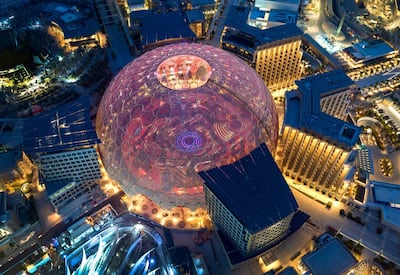Gender equality and women’s empowerment may have been on the global agenda for decades, but much more needs to be done. Indeed, the World Economic Forum (WEF) Global Gender Gap Report 2021 has recently revealed that, as the impact of the Covid-19 pandemic continues to be felt, the time needed to close the global gender gap has increased by a generation – from 99.5 years to 135.6 years.
We know what actions the international community must take – whether on a legislative, investment or capacity-building front – and progress has been achieved, yet much more needs to be done. To narrow the gap, we must tackle that last frontier: the invisible barrier of perceptions. For too long, societies have inherited ideas that relegated women to lesser positions, and unfortunately, these ideas have shaped the development of communities in many parts of the world.
A law – however robust and well intended – will not have the desired outcome if it sits next to negative social norms. We must begin with changing hearts and minds, so we embody the conviction that the equal partnership of men and women is essential to building the future. In other words, we must reinforce that equality begins at home.
This is why, as an Emirati woman, I am blessed to call the UAE home.

The UAE’s Founding Father, Sheikh Zayed, once said: “Nothing makes me happier than seeing women take their exceptional role in society, and nothing must obstruct their advancement.” His vision has been echoed and carried out exceptionally under the direction of the UAE’s wise leadership, bringing us to the point where Expo 2020 Dubai is now the first World Expo in more than 50 years to have a standalone pavilion dedicated to women.
With such vision, it is no wonder that the UAE has pushed the envelope in integrating gender inclusivity into the very fibre of our being and across our households. In the past five decades since our nation’s establishment, Emirati women and men, young and old, have come to appreciate the central role women play in our society and in nation building. Coupled with instilling gender equality into the UAE’s constitution, laws, social services, and educational and economic plans, this has afforded us the opportunity to challenge misconceptions about women from the region, and offer a new perspective to the world: that of the empowered Emirati woman.
The UAE’s progress on women’s issues can be traced back to our past. When we look at our heritage, we recall the legacy of female pioneers, explorers, inventors and innovators from the Arab and Muslim worlds who have contributed to society’s advancement for centuries. This includes Mariam Al Ijliya, who perfected the astrolabe, an astronomical instrument, during the 10th century, or Fatima Al-Fihri, who founded the first university in the early ninth century. In more recent times, we direct ourselves to the example of Sheikha Salama bint Butti, who strongly influenced Sheikh Zayed’s approach to leadership. And of course, we continue to look to the Mother of the Nation, Sheikha Fatima bint Mubarak, who has championed women’s rights her entire life, and Sheikha Hind bint Maktoum bin Juma Al Maktoum, as well as the many women in senior, decision-making positions who continue to demonstrate that we can excel while still embracing our values.

Our faith is not an obstacle, but a source of empowerment: it makes no distinction between the pursuit of education and acquisition of knowledge for men and women, which are described as a duty for every Muslim. We are grateful to the Emirati mothers and grandmothers who enabled educations for their young girls as a path towards their equal participation, encouraging them to dream big and achieve those dreams, and celebrating them every step of the way.
As we approach the UAE’s Golden Jubilee, we find that there is indeed much to celebrate. Women represent 50 per cent of the Federal National Council, and they have also literally taken our country to new heights, with Sarah Al Amiri leading the UAE’s Hope Mars orbiter mission, supported by a team of scientists that is 80 per cent female. Our efforts have been recognised and continue to be showcased globally, with the same WEF Global Gender Gap Report revealing that our nation advanced 48 places in one year.
A key priority for Expo 2020’s Women’s Pavilion in collaboration with Cartier is to demonstrate that gender equality and women’s empowerment is an issue that concerns society as a whole. Under the manifesto “when women thrive, humanity thrives”, it will pay homage to the women who shaped our world, spotlighting the many Emiratis who have dedicated their lives not only to developing this country, but also contributed to the world’s advancement as a whole.
On October 1, the first World Expo in the Middle East, Africa and South Asia – and the most inclusive World Expo in history – will open its doors, serving as a platform for collaboration and progress on the world’s most pressing challenges.
Our six-month mega-event will welcome visitors from every corner of the globe and every walk of life, showcasing the best of the UAE to the world.
It is with great pride that we will highlight that Emirati women have been empowered – by their country, their faith and their culture – to make a difference, and in doing so, we will come together to create a better future for all.


